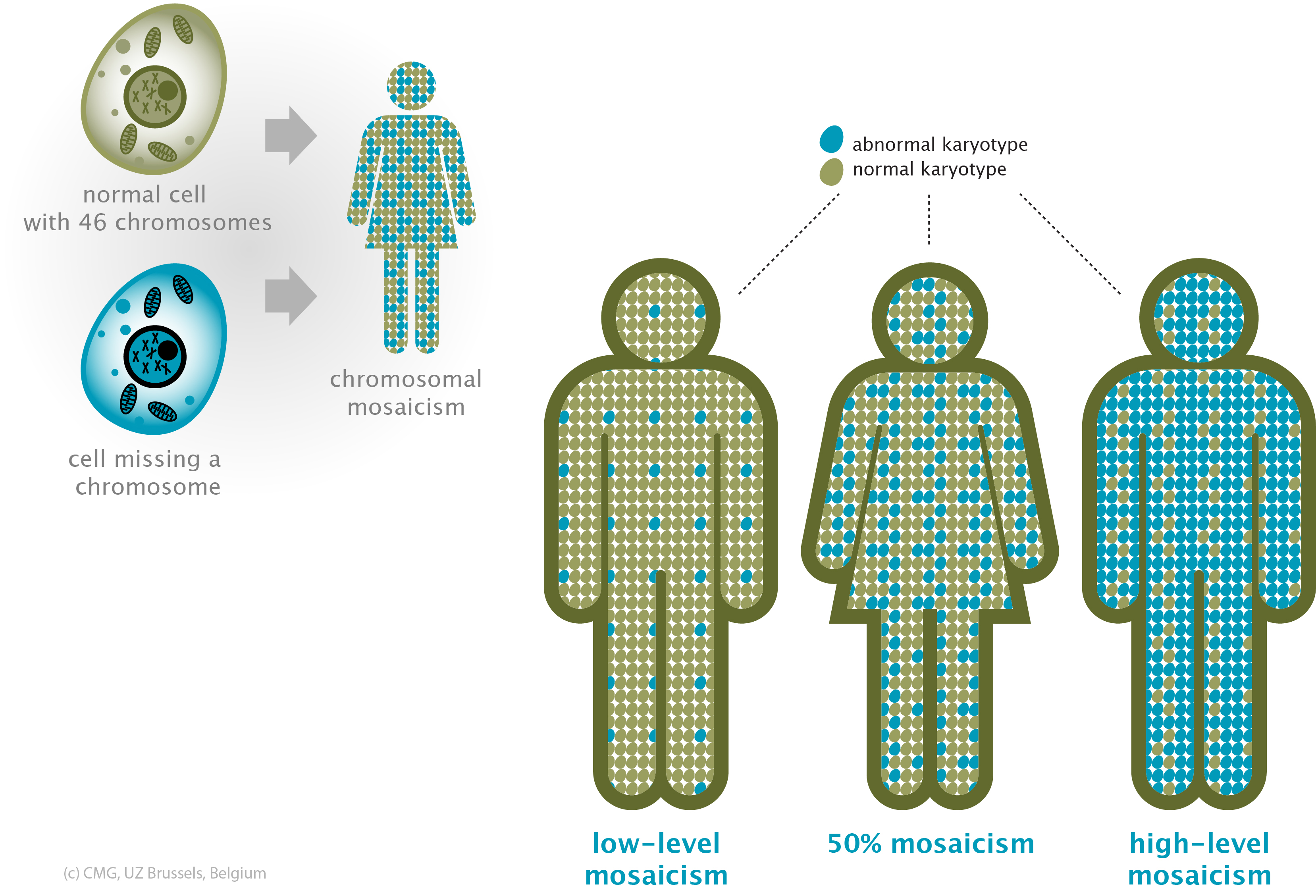Mosaicism
Mosaicism: defect is not present in all cells, always expressed in cells with a defect, so there are gradations from mild to severe.
A person with a genetic disorder may have both normal and abnormal cells. We call this phenomenon mosaicism and it is the result of an error in cell division affecting a number of cells during early development of an embryo or fetus.
Mosaicism is seen mainly at the chromosomal level, particularly in numerical disorders such as Down's, Klinefelter's or Turner's syndrome.
Mosaicism also occurs at the DNA level, e.g. in Fragile X syndrome, due to the (variable in the case of mosaicism) expansion of a trinucleotide repeat.
Depending on the percentage of cells affected, the genetic disorder will be expressed more or less severely. In people with one of these symptoms we may also be able to see this visually and medically (more or fewer external characteristics and symptoms).
